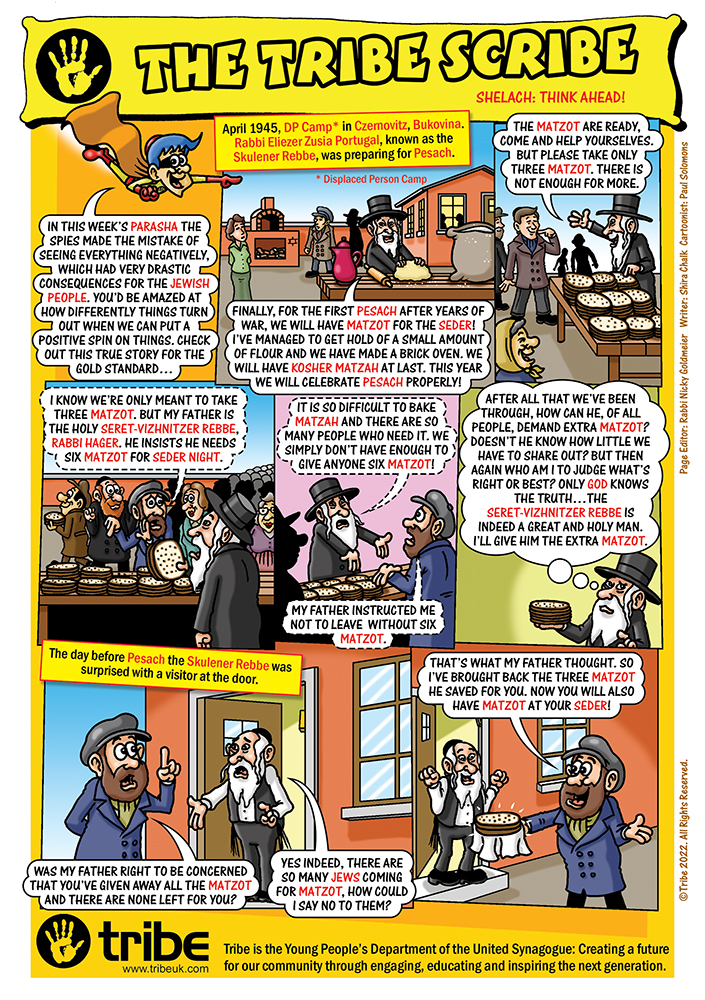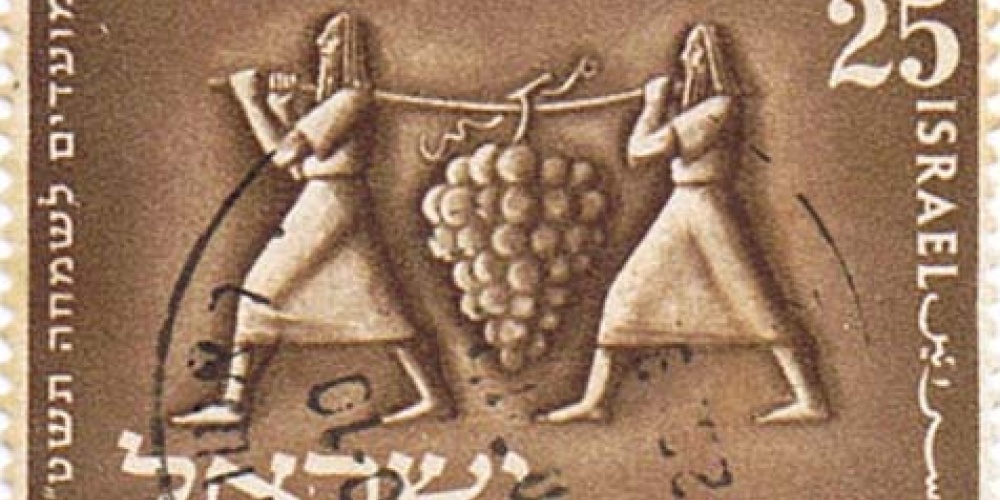Bonjour / Hello [nickname_else_first_name],
Table of contents
1) Perashat Hashavoua - Rabbi Eli Mansour
2) Halakhat Hashavoua (Halakhot related to day to day life) - Hazzan David Azerad
- Laws of Kiddush/Wine
3) Holy Jokes!
4) FOR KIDS!

1)PERASHAT HASHAVOUA
This Week's Parasha Insight with Rabbi Eli Mansour
Parashat Shelah- The Spiritual Mission of Yehoshua’s Spies
The Haftara read on Shabbat Parashat Shelah is the section in the Book of Yehoshua (chapter 2) which tells of the two spies sent by Yehoshua to the city of Yeriho shortly before Beneh Yisrael crossed the Jordan River into the Land of Israel. Just as Moshe sent spies before Beneh Yisrael were to have entered the land, now, forty years later, Yehoshua sent two spies ahead to Yeriho, the first city which Beneh Yisrael conquered after crossing into the land.
Surprisingly, the two spies proceeded directly to the home of Rahab – a woman who, the Gemara explains, worked as a prostitute. Of all the places they could have gone for lodging, they chose specifically the home of this woman.
No less surprising is the sudden transformation that Rahab underwent at that moment. The Midrash teaches that Rahab had worked as a prostitute for decades, and all the noblemen and dignitaries would visit her. And now, suddenly, she became righteous. When it was discovered that these two men were spies from Beneh Yisrael, she hid them, protected them, and told them of how she recognized that Hashem is the true G-d over the universe. She also pleaded with them to spare her and her family when Beneh Yisrael capture Yeriho. The spies promised Rahab that she would be saved, and she ended up joining Beneh Yisrael and even marrying their leader and prophet, Yehoshua.
How could Rahab have made such a drastic transformation – from a woman working in the least dignified profession, to a status of piety whereby she was deemed a suitable match for Yehoshua?
The answer is that the spies were sent on a special spiritual mission.
The land of Canaan was overrun by impurity. It was inhabited by the descendants of Canaan – a grandson of Noah, who committed a despicable act with his grandfather. His descendants followed his legacy of immorality, and their society was characterized by decadence. The Kelipot (forces of impurity) were concentrated in the home of Rahab, where for decades, men would come for sinful purposes. The two spies were righteous Sadikim – identified by the Sages as Pinhas and Kaleb – and they arrived in order to eliminate these Kelipot, to prepare the land for Beneh Yisrael’s entry by cleansing it of its impurity. And so they went directly to Rahab’s home, where the impurity of Canaan was most concentrated. Their mission was to eliminate the impurity through their piety, by lodging in the home of such a woman without any impure thoughts or temptation.
The spies’ exceptional piety had a profound impact upon Rahab. When these two men entered her home, and – unlike the countless other men who had visited her over the years – they exhibited no lust or temptation, and were engaged in purely spiritual matters, this had a drastic effect. Their work to eliminate the Kelipot influenced her to the point where she became exceptionally righteous, worthy of joining the Jewish Nation and marrying Yehoshua.
The verse states that upon the spies’ return to Beneh Yisrael’s camp, they told Yehoshua of their experiences – "Va’yesaperu Lo" (2:23). The verb S.P.R. ("tell" or "relate") can also be understood as an allusion to "Sapir" – sapphire, which produces a special shine. The spies told Yehoshua of the great "light" which they succeeded in producing, as evidenced by the impact of their visit upon Rahab. This showed that their excursion was indeed successful, and the land was now cleansed and ready for Beneh Yisrael to enter and establish the kind of sacred, G-dly society which they were to build.

2) HALAKHAT HASHAVOUA
Halakhot selected and translated by Hazzan David Azerad
The Laws of Kiddush and wine Peninei Halacha
Our chachamim instituted the recitation of kiddush over wine because it is the most dignified beverage, as it provides both nourishment and good cheer. They similarly instituted that a berakha be recited over a cup of wine at other joyful mitzvot, such as weddings (when seven blessings – Sheva Berakhot – are recited), and brit milah. The special status of wine is also expressed in the fact that a special berakha was instituted for it. Before drinking most beverages, we recite the general berakha of She-hakol, and after finishing the drink we recite the short berakha aĥarona, Borei Nefashot. When it comes to wine, however, we recite Ha-gafen before drinking and Al Ha-gefen afterward. Another law gives expression to the special status of wine. Although its berakha is different from that of other drinks, reciting Ha-gafen over wine exempts the person drinking from making berakhot over any other drinks.
Ideally, in order to glorify the mitzvah, kiddush should be made over a fine wine, one the person making kiddush really enjoys. If wine is unavailable, one should make kiddush over bread on Friday night and over an alcoholic beverage such as beer or vodka on Shabbat day.
The recitation of kiddush over wine has profound significance. Generally, holiness comes to expression in the spiritual world. We sanctify Shabbat with wine to express the holiness of Shabbat, which reveals itself in both the spiritual and material worlds. Joy and jubilation, when properly directed, can be our true partners in revealing holiness in the world. This is the point of Shabbat – to reveal holiness through Torah study as well as festive meals, through prayer as well as kiddush over wine. This accords with the statement of the Sages: “One who recites kiddush over wine on Friday night is granted long life in this world and in the World to Come” (Pirkei De-Rabbi Eliezer 19).
Bevirkat Shabbat Shalom Umevorach
David Azerad
3) HOLY JoKeS!!
Selection of funny snippets, loosely related to this weeks parashah or current events, to brighten your day



Click on the image to open the youtube video















